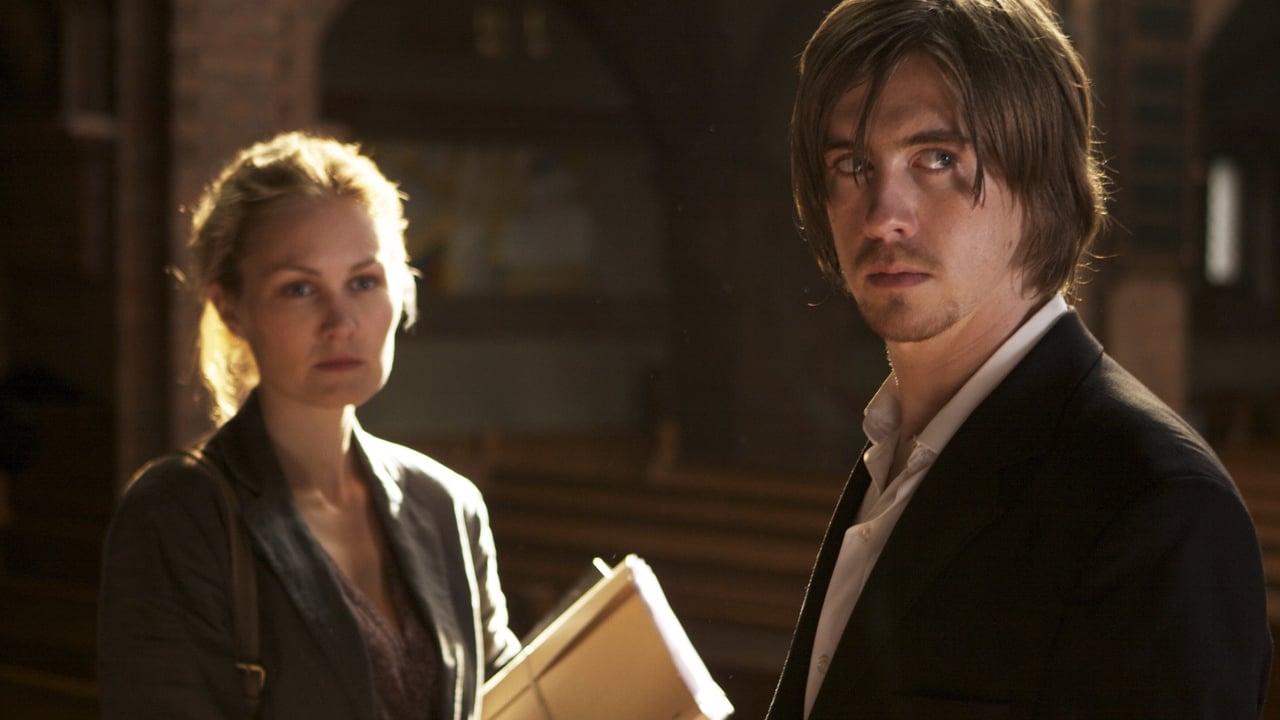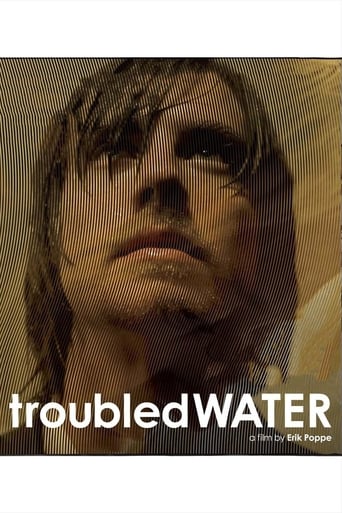Rijndri
Load of rubbish!!
SpecialsTarget
Disturbing yet enthralling
Glucedee
It's hard to see any effort in the film. There's no comedy to speak of, no real drama and, worst of all.
Keira Brennan
The movie is made so realistic it has a lot of that WoW feeling at the right moments and never tooo over the top. the suspense is done so well and the emotion is felt. Very well put together with the music and all.
Sindre Kaspersen
Norwegian screenwriter, producer, cinematographer and director Erik Poppe's third feature film which he co-wrote with Norwegian author, musician and screenwriter Harald Rosenløw Eeg, is based on a story by Erik Poppe, Harald Rosenløw Eeg and Finn Gjerdrum and is the final part of his Oslo Trilogy which was preceded by "Scphaa" (1998) and "Hawaii, Oslo" (2004). It premiered in Norway, was shot on location in Oslo, Norway and is a Norwegian production which was produced by Norwegian producers Finn Gjerdrum and Stein B. Kvae. It tells the story about a man named Jan Thomas Hansen who after having spent eight years in prison for the murder of a young boy named Isak, is released on parole. Due to his musical talent, Jan Thomas gets himself a job as an organist at a church in Oslo, Norway where he acquaints a priest named Anna who lives on her own with her son named Jens who is in kindergarten. Whilst Jan Thomas is getting settled in his new apartment and with his job, the preschool teacher and mother of 4-year-old Isak named Agnes who lives with her husband named Jon and their two adoptive daughters named Selma and Malin is considering whether or not their family should move to Denmark. Distinctly and precisely directed by Nordic filmmaker Erik Poppe, this finely paced and somewhat fictional tale which is narrated from multiple viewpoints though mostly from the protagonist's point of view, draws an authentic, humane and rarely gripping portrayal of a somewhat reluctantly forgiveness-seeking Norwegian man who whilst adapting to life outside prison befriends a single mother and her only child whom reminds him of the child he was imprisoned for having killed with another man nearly a decade earlier, and a mother who one summer day recognizes one of the two men who took her son's life walking around in society as a free man and talking with a child. While notable for it's naturalistic milieu depictions, sterling cinematography by Norwegian cinematographer John Christian Rosenlund, production design by Norwegian production designer Kristine Wilhelmsen and use of light, this character-driven and narrative-driven story about living with loss, looking for conclusive answers, returning to society, acknowledging one's guilt and the possibility of reconciliation, depicts an acutely internal study of character and contains a great and timely score by Swedish composer Johan Söderqvist. This sociological, conversational, modestly romantic and psychological drama from the late 2000s which is set in the capital city of Norway in the 21st century and where an ex-convict is beginning his first intimate relationship in years and a Norwegian citizen of Danish origins begins approaching one of her son's perpetrators, is impelled and reinforced by it's fragmented narrative structure, substantial character development, subtle continuity, vivid characters, emotional substance, poignant and illuminating instrumental music, comment by Agnes : "It is one thing to have lost him. It is something else to not find him again." the impressive acting performance by Norwegian actor Pål Sverre Valheim Hagen in an introverted and deeply vulnerable role interpretation, the masterful acting performance by Danish actress Trine Dyrholm whose performance starts off as understated and escalates into a hurricane of emotional expressions and the reverent acting performances by Norwegian actor Trond Espen Seim, Norwegian actress Ellen Dorrit Petersen and Norwegian actor Frank Kjosås. An excruciatingly heartrending, gently lyrical and gracefully atmospheric character piece, and one of Norwegian cinema history's greatest films.
filmalamosa
The female minister was a wonderful actor the main character Thomas was well cast as someone you wouldn't care for but this movie drags. It resembles a sophisticated Lifetime TV channel special.Two teenage boys for a "prank or thrill" take off with a 4 year old. They think he has been killed when he falls down a river bank...they decide to get rid of the body by disposing of it in the river. The mother of the boy is convinced they killed her son who was never found. The movie opens when one of the teenagers is released from prison. Now in his late 20s he finds a job in a church where forgiveness atonement etc...all workout.This is basically a Lifetime TV special/yuppie Norwegian movie with all the icons...female priest...adopted Asian children...obligatory love scene between a couple married for many years.Real life is not like this of course--once the mother found out the truth she would hate Thomas more. In the end he confesses that the boy was alive when he dropped him in the river.It is so slow moving and so "lets tell a moral tale" laden down with all the conventional middle-class baggage. Ughh...There are a lot of good Norwegian films...Watch Oslo August 31 instead it is so much better.
Olya Ivanova
I really wanted to like this movie because one of my friends, with whom I have similar tastes with, recommended it. I loved the unique points of view of the camera and focus shots. The music was also amazing! Throughout the whole movie I kept wondering if the music was purposely written for this film. But the theme and story were a great disappointment. In the beginning, it seems like this man is a horrible person and you wonder how this movie will make him into a hero. But then, as the story unravels, it clears up the story little by little showing that this man is actually not who you thought he was. But not because you prejudged him (as in Les Misarables or similarly) but because the movie itself led you to believe that he was incarcerated for one crime, where he actually didn't commit it. So at the end you are just left with the feeling of broken judiciary system, rather than a transformation of character or feeling that you saw a different point of view. I did not feel enlightened from the predictable and a cliché "thriller" ending and ultimately felt like I watched a regular Hollywood movie.
proitz
'Troubled Water', directed by Erik Poppe, is a movie filled with emotions and honesty. We meet Jan Thomas, who is getting out of jail and trying to adapt to the life outside the bars. Accused for kidnapping and killing a young boy, Jan Thomas is trying to hide his past. It catches up to him when Agnes, the mother of the boy that was killed, shows up in the church where Jan Thomas is working. Jan Thomas plays the organ in the church, and develops a close relationship to the pastor, Anna, and her son. Throughout the first half of the movie we follow Jan Thomas and see his flashbacks from the incident where the boy was killed. However, half way through the movie there is a change and we start fallowing Agnes, who has been an invisible shadow in Jan Thomas' narrative. By presenting two sides of the same story Poppe makes it hard for the viewer to pick sides. This is easy to relate to; our sympathy shifts after hearing a different side of a story. As a viewer, one gets the feeling of being a judge in a courtroom with two skilled lawyers presenting their clients' stories. This type of a split narrative is original; however, extremely hard to do effectively. Poppe does only a decent job in my opinion; it is not that we get the story twice, but the fact that he builds up to a climax and then breaks it up by changing the main character and start the story from the beginning, which makes the audience lose focus. When the story catches up again and the two stories are combined, a part of the tension that was build up is gone.The main theme in 'Troubled Water' is forgiveness and relationships. Agnes needs Jan Thomas to tell her what actually happened with her son in order to forgive him, and Jan Thomas is desperately seeking forgiveness in order to move on in his life. The crime committed is very extreme, yet so real, which, combined with great acting, creates the feeling that you are standing in both Jan Thomas's and Agnes' shoes. There are many other relationships portrayed in this movie. The most interesting one is probably between Jan Thomas and the pastor's son, Jens. When they meet, Jens is wearing an almost identical shirt as the boy that was killed. Jan Thomas is scared in the beginning, the boy reminds him of the boy that died, but he learns to love Jens and overcomes his fear. Poppe has a unique way of using camera angles and music in order to emphasize and strengthen expressions and emotions. In this movie, Jan Thomas uses the organ to express emotions. Poppe is also paralleling the emotions created through the music with close-up on his expressions of frustration and sadness while playing. These types of effects are very useful in this movie especially because of the type of emotions that needs to be portrayed in a movie that involves the murder of a child. The title, 'Troubled Water', is an interesting pick. Throughout the movie we see scenes that involves water. The young boy is killed in the water, Jan Thomas is beaten up in jail in water, Agnes escapes reality by swimming in the pool at the school she works at, and the holy water in the church, are examples of the use of water that might be a reflection of the title. This symbolizes how the young boy died and should indirectly remind the viewer of the terrible thing that happened. A direct translation from the original title would have been 'The Invisible' which focuses on a totally different aspect of the movie. It is meant to focus on Agnes' invisibility in Jan Thomas' narrative. These are both important details to the movie and by publishing the movie in a different language, Poppe allowed himself to make the audience clearly aware of both.Although Poppe is moving into dangerous territory by directing a split narrative, he does it well. The creativeness of music, camera angles, and light used in this movie among with the phenomenal acting made this whole narrative extremely real. The fact that the scenes are filmed close to where I live made this movie stick in my thoughts for a long time after watching it. It is definitely not necessary to be from any of the Nordic countries to enjoy this movie. The unthinkable fear of losing a child and the thought of forgiving, or be forgiven for the crime of killing an innocent boy will catch the attention of anyone.

